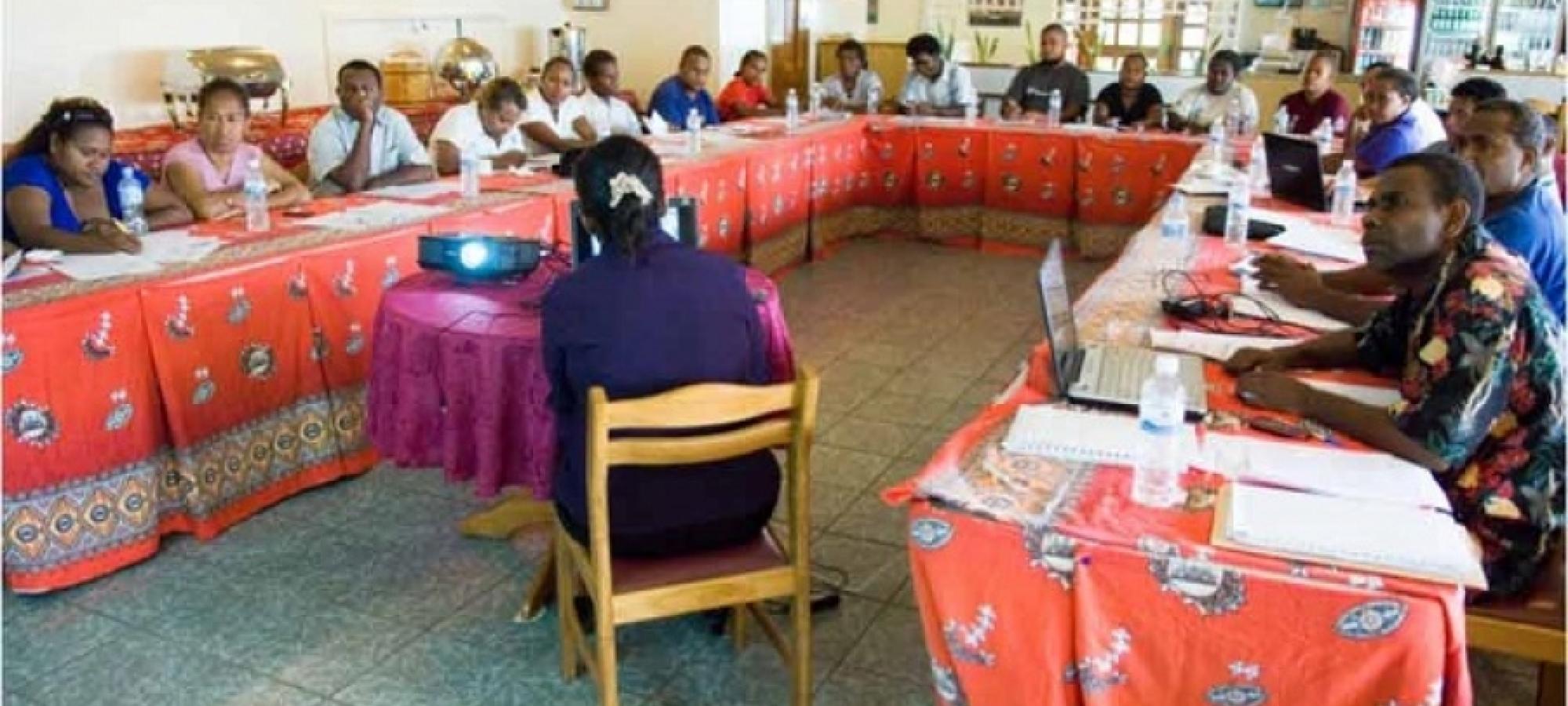
16 May 2012, Secretariat of the Pacific Community (SPC), Suva, Fiji –
Solomon Islands is on track to consider human rights-based national HIV legislation aimed at halting new infections and ensuring the rights of affected people.
The Solomon Islands HIV Legislative Working Group will present a cabinet paper to the Solomon Islands National AIDS Council (SINAC) on 29 May for endorsement.
SINAC, which is chaired by Charles Sigoto MP, Minister for Health and Medical Services, may then submit the paper to cabinet for review in June. If this process is successful, national consultations with beneficiaries, stakeholders and service providers will follow and parliament is expected to consider legislation in the later part of 2012.
Lionel Aingimea, a Senior Trainer with the Secretariat of the Pacific Community (SPC) Regional Rights Resource Team (RRRT), says it is important that HIV legislation is based on principles of human rights. This approach is credited with more effectively arresting the spread of the virus by addressing issues of discrimination and stigma faced by sufferers.
'When there is stigma and discrimination against people with HIV and their basic human rights are not respected, then other people don't want to come out and get tested, and then the virus goes underground,' says Aingimea.
If people are afraid to access testing and other medical services, this allows the HIV virus to spread unchecked in the community.
Papua New Guinea, Fiji and Pohnpei state in the Federated States of Micronesia have all introduced human rights-based HIV legislation in recent years. Solomon Islands looks set to follow suit if all goes according to plan.
John Gela, SINAC Coordinator, says the Ministry of Health wants to take a proactive approach in dealing with HIV before opportunities are missed.
'HIV testing in Solomon Islands is still low and this might be contributing to the low number of cases, so we would like to increase testing. The introduction of HIV legislation will help our HIV programme and the management of HIV cases.'
Solomon Islands currently has only 17 recorded cases of HIV infection but Gela points to the experience of Papua New Guinea, where HIV/AIDS is a serious and ongoing problem.
'We are neighbours of Papua New Guinea and we have a similar culture, and therefore we need to expand our HIV programme here.' If preventative steps are not taken then the issue of HIV/AIDS in Solomon Islands could become much worse.
Dr Lester Ross, Permanent Secretary for the Ministry of Health and Medical Services, has emphasised, 'It is important that we ensure the rights of HIV [positive] people' during any legislative process.He was speaking at the opening of a national HIV policy consultation between the ministry and stakeholders, including religious and non-governmental organisations that ran from 8 to 10 May at the Iron Bottom Sound Hotel in Honiara.
The consultation was facilitated by SPC RRRT with assistance from the Pacific Response Fund on HIV, STIs and TB, and AusAID.
For further information please contact:
Sean Hobbs
+679 330 5582 (ext. 103)
[email protected]
Publications and Communication Coordinator
Secretariat of the Pacific Community
Pacific Regional Rights Resource Team (RRRT)



